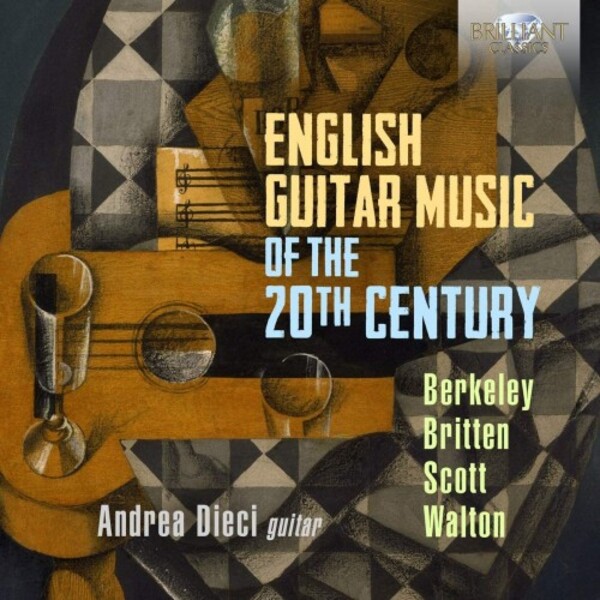
English Guitar Music of the 20th Century: Berkeley, Britten, Scott, Walton
£9.45
In stock - available for despatch within 1 working day
Despatch Information
This despatch estimate is based on information from both our own stock and the UK supplier's stock.
If ordering multiple items, we will aim to send everything together so the longest despatch estimate will apply to the complete order.
If you would rather receive certain items more quickly, please place them on a separate order.
If any unexpected delays occur, we will keep you informed of progress via email and not allow other items on the order to be held up.
If you would prefer to receive everything together regardless of any delay, please let us know via email.
Pre-orders will be despatched as close as possible to the release date.
Label: Brilliant Classics
Cat No: 95937
Format: CD
Number of Discs: 1
Genre: Instrumental
Release Date: 9th April 2021
Contents
Works
Pieces pour la guitare (4), op.posthSonatina for guitar, op.52 no.1
Theme and Variations, op.77
Nocturnal after John Dowland, op.70
Sonatina for guitar
Bagatelles (5)
Artists
Andrea Dieci (guitar)About
Despite being relatively unfamiliar to the wider public, the figure of Cyril Scott (1879–1970) is one of real interest. Having trained in England and in Germany, Scott was a truly gifted pianist and enjoyed the friendship and esteem of composers such as Ravel and Debussy. Though it was written in 1927, Scott’s Sonatina has only entered the repertoire of today’s guitarists in recent years. Its solid compositional mastery gives rise to a beauty at once enigmatic and captivating.
Lennox Berkeley’s (1903–1989) compositions for the guitar span almost half a century and are a faithful record of his stylistic evolution. Between 1927 and 1932 Berkeley studied in Paris with Nadia Boulanger, and these were triumphant years for Segovia, who had made his debut in the French capital in 1924, inspiring widespread and lasting admiration. Berkeley was captivated and dedicated his 4 Pièces pour la guitare to him, a sparkling collection in spirit very close to the style of composers such as Albert Roussel and Francis Poulenc. It would be some 30 years before the composer returned to the guitar in 1957, thanks to the interest of the young British virtuoso Julian Bream. Berkeley’s Sonatina op.52/1 is a work of captivating freshness. The Theme and Variations op.77, commissioned in 1970 by Angelo Gilardino and composed during a period of loosening ties to tonality, is incisive, epigrammatic and aphoristic throughout, reflecting Berkeley’s interest in traditional Chinese poetry.
The Nocturnal after John Dowland op.70 (1963) by Benjamin Britten (1913–1976) is also a theme and variations, but rather than present the theme and develop it with variations, Britten inverts the form, revealing the theme only at the very end of the piece after it is gradually unveiled in fragments of a musical mosaic cleverly scattered across the preceding variations.
The irreverent japes of William Walton’s (1902–1983) Façade for speaker and instrumental sextet, which in 1922/3 marked the composer’s’s debut as an enfant terrible, soon gave way to a late-Romantic style closer to Bax and Vaughan Williams, yet Walton’s irony did not disappear. Rather it was transmuted into an urbane wit, traces of which are found, for example, in the cycle Anon in Love for tenor and guitar, written in 1959 for the duo of Peter Pears and Bream. When Bream asked Walton to try his hand at writing for solo guitar, the composer responded from his retreat on the island of Ischia with the celebrated Five Bagatelles (1970/1), a very strong and imaginative example of compositional craftsmanship.
These pieces for solo guitar by Scott, Berkeley, Britten and Walton have left a permanent mark on the guitaristic landscape, expanding it to territory then unfamiliar in the prevailing aesthetic canon of Segovia. If the 20th century was the golden age in which the guitar repertoire rose to the level of that of other instruments, much of that is due to these composers.
Error on this page? Let us know here
Need more information on this product? Click here